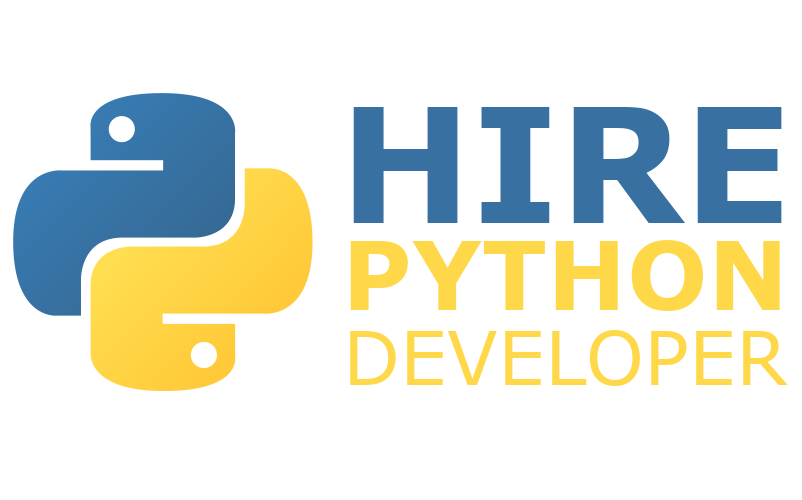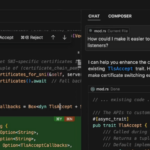Python is one of the most widely used programming languages in the world, powering everything from data science and web development to automation and artificial intelligence. But even with its readability and ease of use, coding in Python can still be time-consuming, especially when you’re building complex systems or trying to debug on a tight deadline.
Here’s a curated selection of the Top 5 Best AI Code Generators for Python in 2025, chosen from the full list of 25 based on their performance, features, developer experience, and versatility across different workflows.
Top 5 AI Code Generators for Python (2025)
| Tool | Best For | Key Strengths | Pricing | Why It’s a Top Pick |
|---|---|---|---|---|
| GitHub Copilot | All-around coding assistant | Deep context awareness, robust completions, VS Code + JetBrains integration | Paid (with free student tier) | Sets the benchmark for AI code generation, especially in production environments |
| Cursor AI | Full-project AI co-programming | Reads entire codebase, supports refactoring, in-editor AI chat | Free + Paid plans | Combines code generation, documentation, and project navigation in one sleek IDE |
| Amazon CodeWhisperer | Cloud-native Python development | Strong AWS SDK integration, security scanning, real-time feedback | Free (individual), Paid (enterprise) | Great for teams working in AWS or building serverless/infra apps with Python |
| Codeium | Fast, free coding assistance | Unlimited usage, fast suggestions, strong language support | Free | The best free alternative to Copilot with surprisingly strong accuracy and speed |
| Tabnine | Privacy-first and offline dev | Local/on-prem deployment, fast completions, team-aware training | Free + Paid tiers | Ideal for devs or teams who need AI help but can’t send code to the cloud |
These five tools cover a range of needs:
Copilot and Cursor for professional workflows
Codeium for cost-effective development
CodeWhisperer for cloud-native projects
Tabnine for secure environments
That’s where AI code generators come in.
In recent years, tools powered by artificial intelligence have emerged to help developers write, refactor, and understand Python code faster than ever. These tools go beyond autocomplete. Many can suggest full code blocks, explain logic, fix errors, generate documentation, or even convert natural language prompts into functioning Python scripts.
Whether you’re a beginner looking for help writing your first script, or a senior engineer aiming to speed up development workflows, AI-powered coding assistants can save you hours.
What Are AI Code Generators?
AI code generators are tools that use machine learning—typically large language models (LLMs)—to help developers write code faster, with fewer errors, and often with better structure. These tools are trained on massive datasets of code from open-source repositories, documentation, tutorials, and Q&A forums, enabling them to understand how code is written and how to generate it based on a developer’s input.
At a basic level, an AI code generator can autocomplete lines of code. But modern tools have gone far beyond that. Today’s best AI assistants can:
Write functions or entire modules from a simple prompt
Translate natural language (like “write a function to reverse a list”) into working Python code
Offer real-time suggestions as you type
Identify bugs and suggest fixes
Explain what a piece of code does
Generate tests, documentation, or SQL queries from code snippets
In short, they act like a co-pilot, pair programmer, or coding tutor—available 24/7.
How They Work
Most AI code generators are built on top of large language models (LLMs) such as:
OpenAI Codex (used in GitHub Copilot and ChatGPT)
CodeT5 (by Salesforce)
CodeGeeX (a multilingual code generation model)
Amazon Titan (used in CodeWhisperer and Amazon Q Developer)
These models are pre-trained on billions of lines of code and then fine-tuned for specific tasks, like code completion, bug detection, or comment generation. Some tools are hosted in the cloud, while others can be installed locally for privacy or performance reasons.
Integration and Usage
AI code generators are commonly used via:
IDE plugins (for VS Code, JetBrains, PyCharm, etc.)
Command-line tools
Web-based platforms (like Replit or CodeWP)
Browser extensions
Standalone apps or terminals with AI embedded (e.g., Cursor AI)
Whether you’re building APIs, scripting automation, or just learning Python syntax, these tools can help cut down repetitive work, reduce debugging time, and make programming more enjoyable.
Next up, we’ll explore the benefits of using AI specifically for Python development.
Would you like me to continue to the next section: Why Use AI for Python Coding?
Why Use AI for Python Coding?
Python is known for its simplicity, readability, and versatility—but even Python developers hit walls. Whether you’re trying to write cleaner code, speed up a project, or get help with unfamiliar libraries, AI can be a game-changer.
Here’s why AI code generators are especially valuable in Python development:
1. Speed Up Repetitive Tasks
Python developers often write similar patterns again and again—like loops, class structures, or boilerplate code for APIs, data analysis, or automation scripts. AI code generators can autocomplete these patterns or generate them entirely, reducing repetitive typing and saving valuable time.
2. Natural Language to Code
One of Python’s biggest strengths is that it reads like English. AI code tools take that a step further by letting you describe what you want in natural language. For example, you can type:
Write a Python function that fetches weather data using an API and returns the temperature in Celsius.
And the AI will generate a working function—often complete with error handling, documentation, and dependencies.
3. Fewer Bugs, Smarter Debugging
Some AI tools can detect common issues in your code as you write. They can flag syntax errors, logic bugs, or performance issues, and suggest fixes in real time. This kind of instant feedback is like having a senior developer reviewing every line you write.
4. Faster Learning Curve for Beginners
For new developers, Python is a great first language—but learning how to structure code, use libraries, or debug errors takes time. AI assistants help bridge that gap by offering real-time examples, explanations, and code suggestions, turning coding into an interactive learning experience.
5. Better Documentation and Testing
Many AI tools don’t just write code—they can explain it. This is useful for creating docstrings, comments, or even unit tests. Some tools will generate tests based on your code, ensuring better test coverage without the manual effort.
6. Seamless Integration with Popular Tools
Most AI code generators are designed to fit directly into Python-friendly environments like:
VS Code
PyCharm
Jupyter Notebooks
Replit
Terminal-based workflows (e.g., Cursor AI, Jedi)
This means you don’t need to change your workflow—just enhance it.
7. Support for Data Science, Web Dev, and More
Python is used in many domains: data science, web development, automation, scripting, DevOps, and machine learning. The best AI code tools are flexible enough to handle all of these contexts, recognizing frameworks like:
Flask / Django
Pandas / NumPy
TensorFlow / PyTorch
FastAPI
SQLAlchemy / MongoDB
No matter your niche, AI code generators can help streamline and strengthen your Python development process.
Criteria for Evaluation
With dozens of AI code generators now on the market, not all tools are created equal. Some are lightweight autocompleters, while others can build entire applications or provide deep contextual analysis. To fairly assess and rank the best AI code generators for Python in 2025, we used the following criteria:
1. Code Generation Accuracy
How well does the tool generate Python code that actually works? We looked for tools that can:
Produce clean, syntactically correct code
Understand context and complete multi-line functions or classes
Avoid common Python pitfalls (e.g., indentation issues, scope errors)
Accuracy matters most when you rely on these tools to write production-ready code.
2. Context Awareness
The best AI tools understand your project—not just the current line. We evaluated whether tools could:
Consider nearby code and project structure
Handle multiple files or larger codebases
Recognize libraries and frameworks being used
For example, does the tool adapt if you’re writing a Flask app vs a data analysis script?
3. Natural Language Support
We looked at how well each tool converts plain English into usable Python code. This includes:
Prompt quality (how well it understands what you want)
Flexibility in phrasing (e.g., “make a list of even numbers” vs “generate an array of evens”)
Ability to explain code or respond to questions about it
4. IDE & Tool Integration
Python developers use a variety of environments. We considered:
Plugin availability for IDEs like VS Code, PyCharm, JetBrains, or Jupyter
Web-based environments like Replit
Command-line or terminal support
GitHub or CI/CD workflow integration
Tools that plug into your existing workflow scored higher.
5. Speed and Responsiveness
A powerful model isn’t helpful if it lags or stalls. We rated:
Autocomplete speed while typing
Full code generation response time
Stability and uptime of cloud-based tools
Low-latency tools provide a smoother, more reliable coding experience.
6. Security and Privacy
We considered how tools handle your code:
Do they store or train on your inputs?
Is there an option to run models locally?
Are there enterprise or private deployment options?
This is especially important for proprietary or sensitive Python projects.
7. Free vs Paid Features
Some tools are fully free, while others offer a freemium model or charge per seat. We compared:
What you get in the free tier (e.g., usage limits, language support)
Whether the paid tier adds real value
Any hidden costs for enterprise use or long-term scaling
8. Special Features
Some tools stand out with unique abilities, such as:
Documentation generation
Bug detection and auto-fixes
Unit test creation
Database query builders (e.g., AI2sql)
Project-level refactoring
Bonus points were given to tools that bring something extra to the table.
The 25 Best AI Code Generators for Python in 2025
Here’s our curated list of the top AI code generation tools for Python developers in 2025. Each tool has been reviewed for functionality, reliability, and how well it integrates into real-world Python workflows—from beginners writing scripts to pros building production apps.
1. GitHub Copilot
Best for: General-purpose Python coding
Built on: OpenAI Codex (GPT-4-tuned)
Strengths: Deep context awareness, great autocompletion, seamless in VS Code, JetBrains
Features: Autocompletes code, writes functions, suggests tests, understands libraries
Pricing: Paid, with limited free use for verified students and open source maintainers
Copilot sets the benchmark. It’s incredibly fast, smart, and helpful across frameworks. Whether you’re importing pandas or building an API, it offers high-quality suggestions.
2. Tabnine
Best for: Privacy-conscious teams and offline use
Built on: Proprietary model
Strengths: On-device AI (no code leaks), fast autocompletion
Features: Local model, team-based completions, IDE plugins
Pricing: Free basic tier, paid pro plans with team support
Tabnine prioritizes privacy and performance. It’s great for dev teams that want smart AI without sending data to the cloud.
3. Amazon CodeWhisperer
Best for: AWS developers and cloud-native Python
Built on: Amazon Titan model
Strengths: AWS integration, security scanning
Features: Code generation, security analysis, context from cloud services
Pricing: Free for individual use, paid for enterprise features
CodeWhisperer shines in cloud-native Python. It’s a solid Copilot competitor for AWS-heavy dev stacks.
4. Replit Ghostwriter
Best for: Coding in the browser
Built on: Custom LLM + OpenAI APIs
Strengths: Browser-native, excellent for fast prototyping
Features: Real-time suggestions, code fixes, inline explanations
Pricing: Premium with Replit Pro
Ghostwriter is ideal for students and hobbyists working in Replit. It simplifies learning and prototyping in one place.
5. Cursor AI
Best for: Full-featured AI pair programming
Built on: GPT-4, Claude, and custom tools
Strengths: Entire editor built around AI, powerful context memory
Features: Multi-file context, refactors, debug assistant
Pricing: Paid, with a free tier
Cursor is an IDE and an AI assistant combined. It’s ideal for advanced developers who want a smarter co-pilot across entire projects.
6. MutableAI
Best for: Fast boilerplate and test generation
Built on: OpenAI + fine-tuned models
Strengths: Refactoring and comment generation
Features: Test writing, code explanations, GitHub Copilot alternative
Pricing: Free with paid upgrades
MutableAI is especially useful for productivity—great for Python developers working in fast-paced startups.
7. AIXcoder
Best for: Enterprises and Chinese-language support
Built on: Proprietary Chinese-language model
Strengths: Offline deployment, IDE integration
Features: Syntax suggestions, local model deployment
Pricing: Custom/Enterprise only
AIXcoder focuses on Chinese markets and large companies. It offers local deployment and solid Python support for secure environments.
8. Codiga
Best for: Code quality, linting, and security
Built on: Static analysis + ML
Strengths: Code snippets + automation rules
Features: Code analysis, best practices enforcement, secure snippets
Pricing: Free basic plan, premium for teams
Codiga is less about full code generation and more about smart, safe, clean Python code—especially useful in regulated industries.
9. AskCodi
Best for: Multi-purpose development tasks
Built on: OpenAI Codex
Strengths: Versatile: generates code, tests, SQL, and documentation
Features: Multiple assistants in one interface
Pricing: Freemium
AskCodi is a Swiss Army knife for developers. Python support is solid, with a UI aimed at ease of use.
10. Codeium
Best for: Fast and free alternative to Copilot
Built on: Proprietary models
Strengths: Unlimited free usage, wide language support
Features: Autocomplete, documentation generator, in-IDE chat
Pricing: Free
Codeium is one of the most accessible tools on this list. It’s a great Copilot alternative, especially for students and solo devs.
11. OpenAI Codex
Best for: Raw code generation from natural language
Built on: The same model powering GitHub Copilot
Strengths: Deep Python expertise, extensive training on open-source code
Features: Powers many other tools, accessible via OpenAI API
Pricing: Usage-based via OpenAI API pricing
Codex is the foundational model behind many code generators. If you’re building your own Python-based coding assistant or want API-level access, this is your core tool.
12. CodeGeeX
Best for: Multilingual code generation (Python + beyond)
Built on: Multilingual transformer models (15+ programming languages)
Strengths: Open-source, supports Chinese and English fluently
Features: Code completion, cross-language translation
Pricing: Free/open source
CodeGeeX is ideal for developers working across multiple languages. It’s especially popular in academic and open-source communities.
13. Sourcegraph Cody
Best for: Codebase-wide reasoning and navigation
Built on: Claude and other advanced LLMs
Strengths: Reads entire repo context, not just local files
Features: Semantic search, refactoring, doc generation
Pricing: Free tier, enterprise options
Sourcegraph’s Cody is amazing for Python devs working in large codebases. It understands cross-file logic, making it a power tool for teams.
14. Codepal
Best for: Beginners and educational purposes
Built on: OpenAI / GPT-3.5+
Strengths: Natural language coding for simpler tasks
Features: Code generation, explanations, quizzes
Pricing: Freemium
Great for educators or new Python programmers, Codepal simplifies coding concepts and turns questions into learning opportunities.
15. CodeT5
Best for: Research and model development
Built on: Salesforce’s open-source transformer for code
Strengths: Strong on fine-tuning for specific coding tasks
Features: Code summarization, translation, generation
Pricing: Free/open source
CodeT5 is more for researchers and developers building their own tools. But it’s a powerful open-source model for Python workflows.
16. AI2sql
Best for: Translating natural language to SQL (Python integration)
Built on: OpenAI models
Strengths: Helps Python devs working with databases
Features: Converts questions to SQL queries
Pricing: Freemium
While not a Python code generator per se, AI2sql is incredibly helpful for Python developers writing data-driven applications.
17. Jedi
Best for: Lightweight, local autocompletion in Python
Built on: Python static analysis
Strengths: Local, fast, IDE-agnostic
Features: Completions, documentation, navigation
Pricing: Free/open source
Jedi is minimalistic but effective, especially in terminal editors like Vim or Emacs. It’s great for Python pros who want speed and simplicity.
18. PyCharm AI Assistant
Best for: Deep integration with JetBrains IDEs
Built on: JetBrains AI backend (powered by OpenAI & proprietary tech)
Strengths: IDE-native, context-aware, smart code suggestions
Features: Completion, code explainers, commit message help
Pricing: Paid (with JetBrains subscription)
If you use PyCharm, JetBrains’ AI Assistant is tailored for Python. It complements the powerful IDE features with intelligent code assistance.
19. Amazon Q Developer
Best for: Enterprise-ready, cloud-native Python development
Built on: AWS Titan
Strengths: Built-in enterprise security and governance
Features: Chat-based help, documentation generation, AWS SDK-aware
Pricing: AWS-based pricing tiers
Amazon Q Developer is like ChatGPT meets AWS. Ideal for teams building secure, large-scale Python services in the cloud.
20. Code Explainer (by CodeSquire)
Best for: Explaining and learning Python code
Built on: OpenAI + custom layers
Strengths: Clear, step-by-step explanations of code logic
Features: Code-to-comment, docstring generation, learning support
Pricing: Freemium
Ideal for students, junior developers, and anyone learning Python by doing. It breaks down what your code does in plain English.
21. CodeWP
Best for: WordPress developers using Python for automation
Built on: Custom-trained LLMs
Strengths: Great for low-code environments
Features: Code generation for WP automation (limited Python support)
Pricing: Free & paid
While more PHP-focused, CodeWP offers some Python support for automation workflows tied to WordPress or server-side scripting.
22. Ponicode
Best for: Automated test creation in Python
Built on: Proprietary model
Strengths: Strong test generation features
Features: Unit test writing, test coverage analysis
Pricing: Discontinued as standalone; integrated into CircleCI ecosystem
Ponicode used to be a powerful Python test generator. It’s now part of CircleCI’s automated QA solutions.
23. Blackbox AI
Best for: Copy-paste coding from natural language
Built on: OpenAI Codex / GPT
Strengths: Fast code snippet generation
Features: Chrome extension, code snippets from web queries
Pricing: Free + Premium options
Blackbox is useful for quick and dirty Python snippets—ideal for fast experiments or copy-paste tasks.
24. DeepCode (by Snyk)
Best for: Static analysis and smart code review
Built on: ML + static analysis engines
Strengths: Code safety, bug detection, secure suggestions
Features: Real-time scanning, automated fixes
Pricing: Free for open source, paid for business use
DeepCode doesn’t write code for you, but it helps ensure the Python code you write is secure, clean, and compliant.
25. Stack AI
Best for: No-code Python app generation from prompts
Built on: GPT-based logic builders
Strengths: Create mini apps or data tools with minimal Python knowledge
Features: Form-based app creation, code generation on demand
Pricing: Freemium
Stack AI is helpful if you’re building data workflows and want to “generate an app” with minimal code knowledge. It’s like AI-assisted automation.
Side-by-Side Comparison Table: AI Code Generators for Python
To help you decide which AI code generator is the best fit for your workflow, here’s a side-by-side comparison of the top tools based on key factors like cost, IDE support, Python strength, and special features.
| Tool | Best For | IDE Support | Free Tier | Offline Option | Python Support | Unique Feature |
|---|---|---|---|---|---|---|
| GitHub Copilot | All-purpose development | VS Code, JetBrains | Limited | No | Excellent | Deep context and autocomplete |
| Tabnine | Private/local dev | Most IDEs | Yes | Yes | Good | Local model deployment |
| Amazon CodeWhisperer | Cloud-native Python (AWS) | VS Code, JetBrains | Yes | No | Great | Built-in security scanning |
| Replit Ghostwriter | Browser-based coding | Replit IDE | No (Pro only) | No | Very Good | Integrated browser environment |
| Cursor AI | AI-first code editing | Cursor IDE (custom) | Yes | No | Excellent | Whole-project refactor and context |
| MutableAI | Fast prototyping and test gen | VS Code | Yes | No | Good | Instant test and comment generation |
| AIXcoder | Enterprise / China-based devs | JetBrains, VS Code | No | Yes | Solid | Local private deployment |
| Codiga | Code quality and security | JetBrains, VS Code | Yes | No | Moderate | Automated secure snippets |
| AskCodi | Multi-assistant tool | Web, VS Code | Yes | No | Good | SQL, doc, test generators in one |
| Codeium | Free Copilot alternative | VS Code, JetBrains | Yes | No | Very Good | Unlimited free usage |
| OpenAI Codex | Raw API integration | API-based | No | No | Excellent | Custom app and tool dev |
| CodeGeeX | Multilingual environments | Web, VS Code | Yes | No | Good | Cross-language coding |
| Sourcegraph Cody | Enterprise codebases | Sourcegraph IDE | Yes | No | Great | Cross-file code awareness |
| Codepal | Learning and explaining | Web | Yes | No | Moderate | Beginner-friendly code explanations |
| CodeT5 | Research and custom AI apps | API/integrated | Yes (OSS) | Yes (self-hosted) | Excellent | Fine-tunable open-source model |
| AI2sql | Data apps and query generation | Web | Yes | No | N/A (compliment to Python) | SQL from natural language |
| Jedi | Lightweight completions | Vim, Emacs, Sublime | Yes | Yes | Good | Local-only Python autocomplete |
| PyCharm AI Assistant | PyCharm-centric workflows | PyCharm (JetBrains) | No | No | Excellent | JetBrains-native chat + completion |
| Amazon Q Developer | Secure enterprise apps | AWS IDEs, VS Code | Yes | No | Great | Deep AWS SDK integration |
| Code Explainer | Python learners | Web, IDE plugin | Yes | No | Good | Breaks code into step-by-step English |
| CodeWP | WP and backend scripts | Web | Yes | No | Limited | AI for WordPress-focused automation |
| Ponicode | Unit test automation (legacy) | VS Code | Legacy | No | Good | Test writing automation |
| Blackbox AI | Quick code snippets from web | Chrome/Browser extension | Yes | No | Good | Copy code from the web with AI help |
| DeepCode | Secure static code review | Snyk IDE plugin | Yes | No | Moderate | ML-powered vulnerability detection |
| Stack AI | App generation from prompts | Web | Yes | No | Basic | Drag-and-drop app builder with Python |
Quick Recommendations
Best Free Tool for Beginners: Codeium or AskCodi
Best for Speed + Accuracy: GitHub Copilot or Cursor AI
Best for Security-Conscious Teams: Tabnine or DeepCode
Best for Python Testing & Docs: MutableAI or Ponicode
Best for Data-Driven Apps: AI2sql (plus Python integration)
Best IDE-native Experience: PyCharm AI Assistant or Amazon Q Developer
Choosing the Right AI Code Generator for Python: A Practical Guide
AI-powered code tools can make Python development faster, cleaner, and more intuitive—but only if you choose the right one for your goals. Whether you’re just getting started or you’re building enterprise-grade applications, this guide will help you pick the best AI code generator for your specific needs.
1. If You’re Just Getting Started with Python
Recommended Tools: Codeium, AskCodi
Getting into Python can feel overwhelming at first—there’s syntax, indentation, data types, libraries, and logic to learn. That’s where AI tools like Codeium and AskCodi become game-changers.
Codeium offers fast, accurate code suggestions without overwhelming you. It works in most major IDEs and gives you code completions that make sense in your context—perfect for learning patterns and structure.
AskCodi goes beyond completions. It includes specialized assistants that can:
Generate Python code from plain English
Create unit tests
Write SQL queries
Generate documentation
Why it works:
These tools provide real-time feedback and reduce the guesswork. Beginners get help without losing control over their code, building confidence and understanding along the way.
2. If You Want Speed and Accuracy
Recommended Tools: GitHub Copilot, Cursor AI
Experienced Python developers need tools that can keep up with their thinking—and maybe even stay a step ahead.
GitHub Copilot uses the power of OpenAI Codex to generate whole functions, anticipate code patterns, and understand libraries like Flask, Django, Pandas, and more. It’s quick, accurate, and widely adopted.
Cursor AI takes a different approach. It’s not a plugin—it’s a full AI-native code editor built from scratch. Cursor understands multiple files, tracks your changes, and provides more intelligent completions and refactoring suggestions than traditional tools.
Why it works:
These tools feel like coding with a top-tier pair programmer. You get speed, smart context awareness, and reduced debugging time—perfect for professional devs or fast-paced projects.
3. If You Care About Privacy or Work in Secure Environments
Recommended Tools: Tabnine, AIXcoder
Some industries—like finance, government, or healthcare—can’t risk sending source code to cloud servers. Others just prefer to keep their work private. These tools offer local or on-premise deployment with no code leakage.
Tabnine allows you to run the AI model locally on your machine. It doesn’t send your code to the cloud unless you explicitly choose to. Great for freelancers, agencies, or security-sensitive teams.
AIXcoder is widely used in China and across enterprises needing offline deployment. It supports major IDEs and can be trained on team-specific coding styles or libraries.
Why it works:
You get the productivity of AI-enhanced coding without compromising security or compliance.
4. If You Work in a Team or Enterprise
Recommended Tools: Amazon Q Developer, Sourcegraph Cody
Enterprise projects come with added complexity—large codebases, distributed teams, onboarding needs, and compliance. AI tools built for teams can help streamline workflows and scale code quality.
Amazon Q Developer offers AI help that understands AWS SDKs, cloud architecture, and DevOps pipelines. It’s deeply integrated with Amazon’s ecosystem, perfect for backend and cloud-native Python developers.
Sourcegraph Cody can read and understand your entire codebase—across files and folders. Developers can ask questions like:
“How does this service authenticate users?”
“Where is this function used?”
“What’s the logic behind this class?”
Why it works:
These tools go beyond line-by-line completion. They provide system-level awareness, making them ideal for managing complexity in large codebases or teams.
5. If You Want to Build Your Own AI Tool
Recommended Tools: CodeT5, OpenAI Codex API
Sometimes off-the-shelf tools aren’t enough. If you want to build custom coding assistants, educational platforms, or AI-powered dev tools, you’ll need a strong model foundation.
CodeT5 is an open-source transformer model designed specifically for code tasks. It supports summarization, generation, and translation across several languages. It’s ideal for academic research or niche tool building.
OpenAI Codex API gives you direct access to one of the most powerful code generation models in the world. You can use it to:
Build your own Python-focused assistants
Automate documentation and testing
Teach Python through interactive, AI-powered prompts
Why it works:
These tools offer flexibility and control. You can fine-tune models or build completely new tools that fit your use case—perfect for startups, researchers, or ed-tech platforms.
Choose one tool that matches your current goals, but stay flexible. As your skills grow, your toolset should evolve. What helps you learn today might not be what helps you ship production apps next year.
Use Cases: Which AI Code Generator Is Right for You?
Choosing the best AI code generator depends on your specific goals, environment, and experience level. Below, we break down popular developer profiles and recommend tools tailored to each use case.
1. Python Beginners or Students
If you’re just starting with Python and need help writing, understanding, or debugging code:
Top Picks:
Codeium (free, fast, great autocomplete)
AskCodi (multi-assistant interface)
Codepal or Code Explainer (simplifies logic into plain English)
Why?
These tools offer guided suggestions, real-time assistance, and code explanations that make learning smoother and less intimidating.
2. Solo Developers & Hobby Coders
Working on personal projects, side hustles, or learning Python as a hobby?
Top Picks:
GitHub Copilot (powerful, general-purpose)
Replit Ghostwriter (perfect for browser-based projects)
Cursor AI (rich multi-file context, sleek interface)
Why?
You’ll get the best balance of functionality, ease of use, and flexibility—without needing a full enterprise setup.
3. Web Developers Using Python (Flask, Django, FastAPI)
If you’re building full-stack applications or APIs with Python frameworks:
Top Picks:
GitHub Copilot
MutableAI (great for test scaffolding)
Amazon CodeWhisperer (if deploying to AWS)
Why?
These tools recognize common patterns, suggest relevant libraries, and help with REST API endpoints, routes, and data validation.
4. Data Scientists and ML Engineers
Python is a favorite in machine learning, data analysis, and AI development.
Top Picks:
Codeium (fast, lightweight)
Cursor AI (multi-file memory, good for ML pipelines)
Jedi (fast, offline autocompletion)
Codex (API) if building custom ML tools with AI
Why?
You need tools that handle NumPy, Pandas, TensorFlow, or PyTorch—and that can generate quick utility functions or data transforms.
5. Enterprise or Security-Sensitive Teams
If you work with proprietary code and can’t send files to cloud-based AI tools:
Top Picks:
Tabnine (on-device deployment)
AIXcoder (offline, enterprise-grade)
DeepCode by Snyk (security-focused static analysis)
Why?
Privacy, control, and compliance matter. These tools keep your code safe and help enforce secure coding practices.
6. Teams with Large Codebases
If your Python project spans multiple files, classes, or services:
Top Picks:
Cursor AI (cross-file context, intelligent memory)
Sourcegraph Cody (entire repo analysis and chat)
PyCharm AI Assistant (tight IDE integration)
Why?
You need deep context understanding—these tools help with navigation, refactoring, and understanding large or legacy Python code.
7. Full-Stack Engineers Using Python and Databases
Need to generate both Python backend logic and SQL queries?
Top Picks:
AI2sql (for natural language to SQL)
AskCodi (handles both Python and SQL)
GitHub Copilot (well-rounded across the stack)
Why?
They bridge the gap between app logic and data layer with intelligent code generation across both.
8. Researchers and AI Engineers Building Custom Tools
If you want to fine-tune models or build your own code generators:
Top Picks:
CodeT5 (open-source and research-friendly)
OpenAI Codex (API) for advanced integrations
CodeGeeX (great multilingual base)
Why?
You can tailor these models to your own datasets or create tools that go beyond generic code completion.
9. Python Test and Documentation Automation
If your goal is to automate unit test creation, docstrings, and comments:
Top Picks:
MutableAI (auto test and doc generation)
Ponicode (legacy but strong test creation)
Codiga (for clean, documented snippets)
Why?
These tools streamline testing and documentation, saving time and improving software quality.
10. Low-Code / No-Code Users with Basic Python Needs
You don’t write much code but occasionally need to automate small tasks:
Top Picks:
Stack AI (app generation from prompts)
CodeWP (Python scripts tied to WordPress or automation)
Blackbox AI (copy-paste code snippets from the web)
Why?
You get quick results without needing to know full syntax or structure. Great for small, one-off tasks.
AI isn’t replacing developers—it’s empowering them. These tools don’t just save time; they help you focus on higher-level thinking, architecture, and solving real problems. The best Python developers today aren’t necessarily those who type the fastest—they’re the ones who know how to leverage the smartest tools.
As these tools continue to improve, expect deeper IDE integration, better memory across projects, improved debugging help, and even AI-powered code reviews. If you’re not already using one, now’s the time to start.
Frequently Asked Questions (FAQs)
Are AI code generators safe to use in production?
Yes, but review all code carefully. AI tools can occasionally introduce subtle bugs or inefficiencies. Tools like Tabnine and DeepCode help enforce safety and quality.
Which is better: Copilot or Codeium?
Copilot is more powerful overall, but Codeium is a strong free alternative with great features for most developers.
Can these tools help me learn Python?
Absolutely. Tools like AskCodi, Code Explainer, and even ChatGPT can help you learn by example, explain logic, and generate practice problems or tests.
Do these tools work offline?
A few do—Tabnine, Jedi, and AIXcoder offer offline or on-prem deployment options. Most others are cloud-based.
Which tool is best for building data science projects?
Cursor AI, GitHub Copilot, and Codeium are top picks. They handle libraries like pandas, NumPy, and matplotlib well.
Lydia is a seasoned technical author, well-versed in the intricacies of software development and a dedicated practitioner of Python. With a career spanning 16 years, Lydia has made significant contributions as a programmer and scrum master at renowned companies such as Thompsons, Deloit, and The GAP, where they have been instrumental in delivering successful projects.
A proud alumnus of Duke University, Lydia pursued a degree in Computer Science, solidifying their academic foundation. At Duke, they gained a comprehensive understanding of computer systems, algorithms, and programming languages, which paved the way for their career in the ever-evolving field of software development.
As a technical author, Lydia remains committed to fostering knowledge sharing and promoting the growth of the computer science community. Their dedication to Python development, coupled with their expertise as a programmer and scrum master, positions them as a trusted source of guidance and insight. Through their publications and engagements, Lydia continues to inspire and empower fellow technologists, leaving an indelible mark on the world of scientific computer science.





